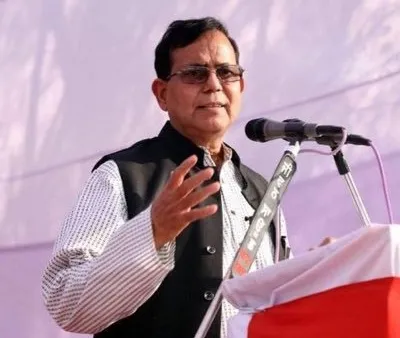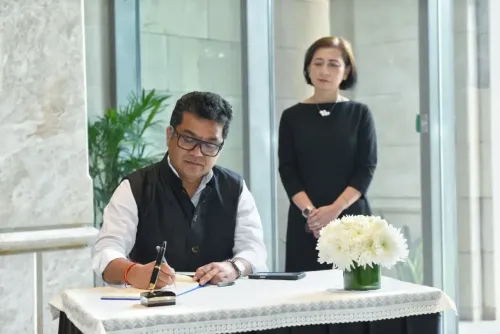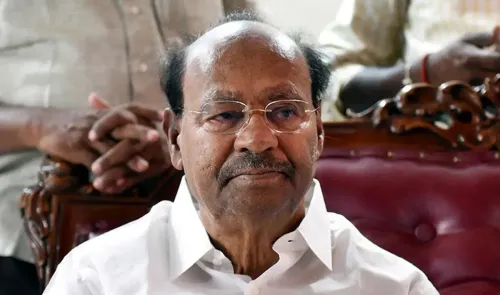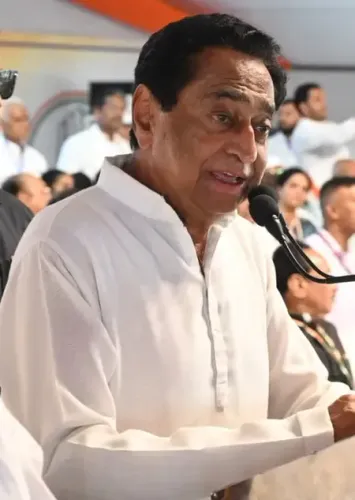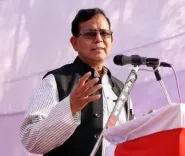Madhya Pradesh Unveils Policies to Empower MSMEs and Startups
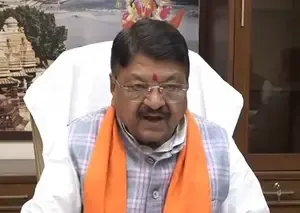
Synopsis
Key Takeaways
- New land allocation policy for MSMEs.
- Significant subsidies for energy sector investors.
- Startup policy to double startups in the state.
- Religious tourism development through improved transport.
- Water crisis addressed with the Tapti Mega Recharge Project.
Bhopal, Feb 18 (NationPress) The government of Madhya Pradesh has introduced a range of groundbreaking policies aimed at enhancing Micro, Small, and Medium Enterprises (MSMEs) and revitalizing other vital sectors.
One of the key features is a novel policy for allocating undeveloped land, intended to assist qualifying projects with governmental support and guidance. This initiative encompasses provisions for flats when land is scarce, emphasizing a clear online application system with land distribution via e-bidding.
To boost the energy sector, the state has set ambitious targets and subsidies. Investors who invest more than Rs 10 crore will be eligible for a 40% subsidy, with even more substantial benefits for designated groups—48% for scheduled castes, scheduled tribes, and industries run by women, and 52% for women entrepreneurs.
The objective is to integrate these demographics into the MSME framework and promote development in areas currently lacking industrial establishments, as stated by Kailash Vijayvargiya, Spokesperson and Minister for Urban Development and Housing, following the Cabinet meeting on Tuesday.
The Cabinet has also sanctioned a startup policy aimed at increasing the number of startups from the existing 5,000 to 10,000. Large incubation centers will be created to offer loan assistance, market access, and additional support to foster innovation and growth. Moreover, a startup advisory council will be established to oversee these efforts, according to the minister.
In the tourism domain, particularly regarding religious tourism, the government has proposed a policy to create airports every 150 km and helipads every 45 km. This initiative is anticipated to generate employment via pilot training and air cargo services, as informed by the minister.
To address the persistent water crisis, the Tapti Mega Recharge Project will construct a 273 km canal to replenish groundwater with 11.76 million cubic meters of water. This initiative will benefit 123,000 hectares in Burhanpur and Khandwa districts, enhancing agriculture, water sources, and groundwater levels, especially assisting farmers in Khandwa district who regularly face water shortages, the minister elaborated.
Plans are also underway to convert cities such as Bhopal, Gwalior, Indore, Ujjain, and Jabalpur into model electric cities. This includes a strong emphasis on electric vehicles with discounts on registration fees for various vehicle types and support for establishing charging stations, particularly for women and differently-abled individuals.
Additionally, a new policy allows groups, including farmers, to develop townships in collaboration with the government. This initiative promotes investment and organized development through land pooling, offering affordable housing subsidies and project approvals from authorized committees at both district and state levels.
These extensive measures are designed to promote sustainable growth, enhance infrastructure, and improve the overall quality of life in Madhya Pradesh, the minister further stated.

